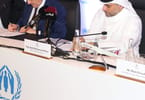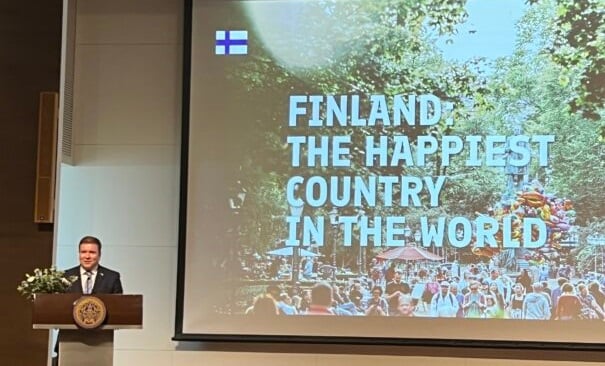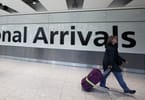ರಾಬರ್ಟೊ ಅಲ್ವೋ:
ನನ್ನ ಪ್ರಕಾರ, ಈ ಪ್ರದೇಶವು ದೊಡ್ಡ ಬೆಳವಣಿಗೆಯ ಸಾಮರ್ಥ್ಯವನ್ನು ಹೊಂದಿದೆ. ಇಲ್ಲಿ ಪ್ರತಿ ಪ್ರಯಾಣಿಕರಿಗೆ ವಿಮಾನಗಳು ಅಭಿವೃದ್ಧಿ ಹೊಂದಿದ ಆರ್ಥಿಕತೆಗಳಲ್ಲಿ ನೀವು ನೋಡುವುದರಲ್ಲಿ ನಾಲ್ಕನೇ ಅಥವಾ ಐದನೇ ಒಂದು ಭಾಗವಾಗಿದೆ. ದೊಡ್ಡ ಭೌಗೋಳಿಕತೆಗಳೊಂದಿಗೆ, ಗಾತ್ರದ ಕಾರಣದಿಂದಾಗಿ, ದೂರದ ಕಾರಣದಿಂದಾಗಿ, ಕೇವಲ ಪರಿಸ್ಥಿತಿಗಳ ಕಾರಣದಿಂದಾಗಿ ಸಂಪರ್ಕಿಸಲು ಹೆಚ್ಚು ಕಷ್ಟ. ಆದ್ದರಿಂದ, ದಕ್ಷಿಣ ಅಮೆರಿಕಾದಲ್ಲಿನ ವಿಮಾನಯಾನ ಉದ್ಯಮವು ನಾವು ಮುಂದೆ ಹೋದಂತೆ ಪ್ರಯತ್ನಿಸುತ್ತದೆ ಎಂಬುದರಲ್ಲಿ ನನಗೆ ಸಂದೇಹವಿಲ್ಲ. ಆದರೂ ಖಂಡಿತವಾಗಿಯೂ ಕಷ್ಟದ ಸಮಯಗಳನ್ನು ಎದುರಿಸಬೇಕಾಗುತ್ತದೆ ಎಂದು ಹೇಳಿದರು.
ಆದರೆ ನೀವು ನನ್ನನ್ನು ಕೇಳಿದರೆ ನಾನು LATAM ಮೇಲೆ ಹೆಚ್ಚು ಗಮನಹರಿಸಲು ಬಯಸುತ್ತೇನೆ, ಬದಲಿಗೆ ಉದ್ಯಮ, ಏಕೆಂದರೆ ನಾನು ಇತರ ಜನರಿಗಾಗಿ ಮಾತನಾಡಲು ಬಯಸುವುದಿಲ್ಲ. ದಿನದ ಕೊನೆಯಲ್ಲಿ, ಇದು LATAM ಗೆ ಬಹಳ ಆಸಕ್ತಿದಾಯಕ ಕ್ಷಣವಾಗಿದೆ. ಬಹುಶಃ ಈ ಬಿಕ್ಕಟ್ಟಿನಿಂದ ನಾವು ಪಡೆದ ಪ್ರಮುಖ ಕಲಿಕೆಯೆಂದರೆ ನಮ್ಮ ಆಲೋಚನೆಗಳು, ನಮ್ಮ ನಂಬಿಕೆಗಳು, ನಮ್ಮ ಮಾದರಿಗಳನ್ನು ನಮ್ಮ ಮುಂದೆ ಇಡಲು ಮತ್ತು ಅವುಗಳನ್ನು ಪರೀಕ್ಷಿಸಲು ನಾವು ಸಮರ್ಥರಾಗಿದ್ದೇವೆ. ಮತ್ತು ಏನು ನಿಂತಿದೆ ಮತ್ತು ಏನು ಬದಲಾಯಿಸಬೇಕು ಎಂಬುದನ್ನು ನೋಡಿ.
ಮತ್ತು ಈ ವ್ಯವಹಾರದೊಂದಿಗೆ ಹೋಗುವ ಬಗ್ಗೆ ವಿಭಿನ್ನ ಮಾರ್ಗವಿದೆ ಎಂದು ಸಂಸ್ಥೆಯು ಹೇಗೆ ಅರ್ಥಮಾಡಿಕೊಂಡಿದೆ ಎಂಬುದನ್ನು ನೋಡಲು ನಂಬಲಾಗದ ಸಂಗತಿಯಾಗಿದೆ. ಅಥವಾ ಬದಲಾವಣೆಯೊಂದಿಗೆ ನಮ್ಮನ್ನು ನಾವು ಹೇಗೆ ಸರಳಗೊಳಿಸಿಕೊಳ್ಳುತ್ತೇವೆ, ನಮ್ಮ ಗ್ರಾಹಕರಿಗೆ ಹಾರಾಟದ ಅನುಭವ. ನಾವು ಹೆಚ್ಚು ಪರಿಣಾಮಕಾರಿಯಾಗುತ್ತೇವೆ. ನಾವು ಸಮಾಜಗಳು ಮತ್ತು ಒಟ್ಟಾರೆ ಪರಿಸರದ ಬಗ್ಗೆ ಹೆಚ್ಚು ಕಾಳಜಿ ವಹಿಸುತ್ತೇವೆ. ಮತ್ತು ಇದು ಸ್ವಲ್ಪ ವಿಪರ್ಯಾಸವಾಗಿದೆ, ಆದರೆ ಈ ಬಿಕ್ಕಟ್ಟು ಖಚಿತವಾಗಿ ಬಿಕ್ಕಟ್ಟಿಗೆ ಮುಂಚೆಯೇ LATAM ನಂತೆ ಹೆಚ್ಚು ಬಲಶಾಲಿಯಾಗಲು ನಮಗೆ ಅನುಮತಿಸುತ್ತದೆ. ನಾನು ವಿಶೇಷವಾಗಿ ನಮ್ಮ ಕಂಪನಿಯ ಬಗ್ಗೆ ತುಂಬಾ ಆಶಾವಾದಿಯಾಗಿದ್ದೇನೆ. ಮತ್ತು ನಾವು ಅಧ್ಯಾಯ 11 ಪ್ರಕ್ರಿಯೆಯ ಮೂಲಕ ನ್ಯಾವಿಗೇಟ್ ಮಾಡುವಾಗ, ಇದು ಕಷ್ಟಕರ ಸನ್ನಿವೇಶವಾಗಿದೆ. ನಾವು ಮಾಡುತ್ತಿರುವ ಬದಲಾವಣೆಗಳೊಂದಿಗಿನ ಅಧ್ಯಾಯವು ಮುಂದಿನ ಕೆಲವು ವರ್ಷಗಳಲ್ಲಿ LATAMS ಭವಿಷ್ಯದ ಬಗ್ಗೆ ನನಗೆ ತುಂಬಾ ಆಶಾವಾದಿಯಾಗುತ್ತಿದೆ.
ಪೀಟರ್ ಸೆರ್ಡಾ:
ಮತ್ತು ಭವಿಷ್ಯ ಮತ್ತು 11 ನೇ ಅಧ್ಯಾಯದ ಬಗ್ಗೆ ಮಾತನಾಡುತ್ತಾ, ಏಕೆ ನಿರ್ಧಾರ? ಆ ಸಮಯದಲ್ಲಿ ನೀವಿಬ್ಬರೂ ನಂಬಿದ್ದ ಆ ಹಂತಕ್ಕೆ ನಿಮ್ಮನ್ನು ನಿಜವಾಗಿಯೂ ತಳ್ಳಿದ್ದು ಯಾವುದು, ನಾವು ಬಿಕ್ಕಟ್ಟಿನಿಂದ ಹೊರಬಂದ ನಂತರ ಭವಿಷ್ಯದ ಕಡೆಗೆ ನಿಮ್ಮನ್ನು ವಿಮಾನಯಾನ ಸಂಸ್ಥೆಯಾಗಿ ಇರಿಸಿಕೊಳ್ಳಲು ಇದು ಅತ್ಯುತ್ತಮ ಕ್ರಮವಾಗಿದೆ ಎಂದು ನಾನು ಊಹಿಸುತ್ತೇನೆ?
ರಾಬರ್ಟೊ ಅಲ್ವೋ:
ನಾವು ಅರಿತುಕೊಂಡಾಗ ನಾವು ಸರ್ಕಾರದ ಸಹಾಯವನ್ನು ಪಡೆಯುವುದಿಲ್ಲ ಎಂಬುದು ನಮಗೆ ಸ್ಪಷ್ಟವಾಗಿದೆ ಎಂದು ನಾನು ಭಾವಿಸುತ್ತೇನೆ. ಅಥವಾ ಆ ಸರ್ಕಾರದ ಸಹಾಯ ನಮಗೆ ನಾವೇ ಪುನರ್ ರಚನೆ ಮಾಡಿಕೊಳ್ಳುವ ಸ್ಥಿತಿ ಬರುತ್ತದೆ. ನಾವು ಹೆಚ್ಚು ಅಥವಾ ಕಡಿಮೆ ಸಮಯವನ್ನು ತೆಗೆದುಕೊಳ್ಳಬಹುದು ಎಂಬುದು ಸ್ಪಷ್ಟವಾಯಿತು, ಆದರೆ ಅನೇಕರು ಹೊಂದಿರುವಂತೆ ಕಂಪನಿಯನ್ನು ಪುನರ್ರಚಿಸುವ ಸ್ಥಾನದಲ್ಲಿ ನಾವು ನಮ್ಮನ್ನು ಇರಿಸಿಕೊಳ್ಳಬೇಕು. ಮತ್ತು ಇಲ್ಲದಿರುವವರು, ಅವರಲ್ಲಿ ಹೆಚ್ಚಿನವರು ಸರ್ಕಾರದಿಂದ ಸಹಾಯ ಮಾಡಿರುವುದರಿಂದ. ಇದು ಬಹುಶಃ ಮಂಡಳಿ ಅಥವಾ ಕಂಪನಿ ತೆಗೆದುಕೊಳ್ಳಲು ಸಾಧ್ಯವಾಗುವ ಅತ್ಯಂತ ಕಠಿಣ ನಿರ್ಧಾರವಾಗಿದೆ. ನಿಮಗೆ ತಿಳಿದಿರುವಂತೆ, ಕ್ಯುಟೊ ಕುಟುಂಬವು 25 ವರ್ಷಗಳಿಂದ ಈ ಕಂಪನಿಯ ಪ್ರಮುಖ ಷೇರುದಾರರಾಗಿದ್ದಾರೆ ಮತ್ತು ಅವರು ಎಲ್ಲವನ್ನೂ ಕಳೆದುಕೊಳ್ಳುವ ನಿರ್ಧಾರವನ್ನು ಎದುರಿಸಿದರು. ಮತ್ತು ಈ ಸಂಸ್ಥೆಗಳ ಬಗ್ಗೆ ಅವರು ಹೊಂದಿರುವ ನಂಬಿಕೆಯ ಬಗ್ಗೆ ನಾನು ಪ್ರಭಾವಿತನಾಗಿದ್ದೇನೆ. ತದನಂತರ ಆಳವಾಗಿ, ಅವರು ಕಂಪನಿಯಲ್ಲಿ ಮರುಹೂಡಿಕೆ ಮಾಡಲು ಮತ್ತು LATAM ನ ಸಾಲದಾತರಾಗಲು ನಿರ್ಧರಿಸಿದರು.
ನಾನು ಈಗ ನೋಡುತ್ತಿರುವಂತೆ, ಖಂಡಿತವಾಗಿ ಕಂಪನಿಗೆ, ಇದು ಉತ್ತಮ ಅವಕಾಶವಾಗಿದೆ. ಅಧ್ಯಾಯದ ಪುನರ್ರಚನೆಯು ನಮಗೆ ತೆಳ್ಳಗೆ, ಹೆಚ್ಚು ಪರಿಣಾಮಕಾರಿಯಾಗಿರಲು ಅನುವು ಮಾಡಿಕೊಡುತ್ತದೆ, ಮತ್ತು ನಾವು ಪ್ರಕ್ರಿಯೆಯನ್ನು ಪ್ರವೇಶಿಸಿದಾಗ ನಾವು ಹೊಂದಿದ್ದಕ್ಕಿಂತ ಬಲವಾದ ಬ್ಯಾಲೆನ್ಸ್ ಶೀಟ್ ಅನ್ನು ನಾವು ಹೊಂದಿದ್ದೇವೆ. ಆದ್ದರಿಂದ, ನಾವು ಎಲ್ಲಿ ನಿಲ್ಲುತ್ತೇವೆ ಮತ್ತು ನಾವು ಏನು ಮಾಡಬೇಕು ಎಂಬುದರ ಬಗ್ಗೆ ನನಗೆ ತುಂಬಾ ಒಳ್ಳೆಯದು. ನಾವು ಈ ನಿರ್ಧಾರವನ್ನು ತೆಗೆದುಕೊಳ್ಳಬೇಕಾಗಿರುವುದು ದುರದೃಷ್ಟಕರ. ಆದರೆ ಕಂಪನಿಗೆ, ಇದು ಸಮಯಕ್ಕೆ ತುಂಬಾ ಒಳ್ಳೆಯದು ಎಂದು ನನಗೆ ಖಾತ್ರಿಯಿದೆ.
ಪೀಟರ್ ಸೆರ್ಡಾ:
What does LATAM look like, once you come out of chapter 11, I imagine there’s some speculation you may come out sometime this year, mid this year or beginning of next? What will LATAM look like? Are you going to maintain the same level of connectivity airplanes or will it be a different LATAM?
ರಾಬರ್ಟೊ ಅಲ್ವೋ:
I mean, we will be there to supply with our capacity, the demand, as the demand recovers. LATAM will remain being, for sure, the largest, most important, with a better network company in Latin America, for sure. The size of the recovery, the speed of the recovery will depend very much on the circumstances. But I see a group of companies that will have a significant presence in all the major economies of Latin America. We will keep providing the connectivity within South America that we have. Prior to the crisis, 4 out of 10 passengers that wanted to move internationally within South America were carried by LATAM. And we were able also to connect the region with all five continents, which is the only airline that can do that. So LATAM will be smaller or bigger than what it entered, it will depend much more than anything on demand and eventually on industry reshaping. But you can rest assured that as we exit the chapter, hopefully at the end of the year, this is our target, we will be definitely the best way to travel within or to the region, on the airline industry.
ಪೀಟರ್ ಸೆರ್ಡಾ:
LATAM has done tremendous amount of expansion over the years, bringing more connectivity, as you say, to all the continents, bringing more social wellbeing to our societies in the region. Is it a sour note that you had to close LATAM Argentina, that you had to pull out, where in the past you’ve been instilling yourself throughout the region?
ರಾಬರ್ಟೊ ಅಲ್ವೋ:
Absolutely. I personally spent three years in Argentina, was the CFO when we started our operation there. So, for me in particular, it was a very sad moment when we had to make the decision of doing it. Argentina is twice as big as Chile in population, is three times as big as Chile in surface area. And Chile carried more passengers domestically and internationally than Argentina in 2019. So, it is a great economy, it is a great market. It is huge potential, is very underdeveloped. But we just couldn’t find the set of circumstances where we could believe that we could have a sustainable operation in Argentina any longer. And we took that very hard decision. But again, I think that this crisis is when you put again, your thoughts and your beliefs and your emotions in front of you and do that. And at the end of the day, that also helped us to focus and redeploy our priorities and the opportunities.
Today we’re looking into the Colombian market, which is the second largest market in the region. It’s a great opportunity for LATAM. We have been able in the last years to position ourselves as clearly the second operator in Colombia. We have come to a very, very solid cost position. I believe that we can be extremely competitive in our cost, even with low cost carriers. And we believe that the compliment that the geography of Colombia has, with respect to the rest of the network of LATAM, is just perfect. So yes, it is very sad not to be able to find a way to feel that we could be sustainable in Argentina. But a problem always brings an opportunity. And now we can refocus our resources where we believe we have better chances of succeeding.
ಪೀಟರ್ ಸೆರ್ಡಾ:
Do you see yourself in the case of Colombia and Peru, with two big hubs, two main markets, too much capacity in those areas, or there’s enough room to grow for you?
ರಾಬರ್ಟೊ ಅಲ್ವೋ:
No, again, I think that the region itself has a significant growth potential. And I think that the compliment of our Lima hub, with [inaudible 00:22:34] operation in the Northern part of the subcontinent, is very clear. So, I don’t see any challenges with respect to that. And the combination of what we have today, São Paulo, Lima and Santiago, which allows us to connect South America with almost everywhere in the best of ways, is a huge benefit to any large deployment or operation that we could have in the Northern part of the other South American subcontinent.
ಪೀಟರ್ ಸೆರ್ಡಾ:
Let’s talk about Brazil a little bit, our biggest economy, biggest country. You have a strong presence in the country. How do you see Brazil moving forward in the years to come? This is an economy we would expect a market for aviation that should be booming. We should be at historic levels. Do you see that happening in the next couple years?
ರಾಬರ್ಟೊ ಅಲ್ವೋ:
It’s a good question. When we joined forces with TAM back in 2012, the real to the dollar was 1.6. In the last few days, it reached a historical maximum of 5.7. So, for any domestic operator that has cost in dollars and revenues in real, this is an extremely challenging moment. If you add to that the increase of the fuel price, it is definitely a compelling case for a difficult situation. Having said that though Brazil is huge, and I believe that the development of Brazil is there. It is a little bit hard to tell how fast that will be. The recovery of the country itself is interesting to see. Brazil is our largest market, 40% of our resources and our capacity sits in Brazil. And it’s clearly the cornerstone of the LATAM network. So, we will see how this goes. But LATAM’s permanent position being the largest carrier from [inaudible 00:24:26] to the world. And one of the largest domestic carriers, providing connectivity between anywhere to anywhere in Brazil will still stand.
ಪೀಟರ್ ಸೆರ್ಡಾ:
LATAM, Azul, GOL, is there enough in Brazil for all three of you?
ರಾಬರ್ಟೊ ಅಲ್ವೋ:
I believe so. I think, definitely three players in a market such as Brazil can work very well. I think that we have probably two of the most challenging competitors, in terms that they are really good competing with us in Brazil. And I feel very good about the fact that that is a challenge that has been posed to ourselves. So, I very much respect them. I think that they both have done a great job. And I’m happy to try to win the market from them.
ಪೀಟರ್ ಸೆರ್ಡಾ:
Let’s switch a little bit to partners. I know many of the audience watching us… LATAM was a long member of One World, for many, many years. Then the relationship with Delta came into the family, to discussion, your exit from One World. Has the crisis now impacted that strategy that you have in place with Delta? Has it delayed it? Is it still on course? Tell us a little bit of the decision you made to leave One World and that building block that you have with Delta moving forward? How will this make LATAM even stronger?
ರಾಬರ್ಟೊ ಅಲ್ವೋ:
Well, of course it was a very interesting decision to make that change. And however, I feel very good about our relationship with Delta. No, it has not delayed the process at all. We are in the process of getting anti-trust approvals from the different countries where we need to file for having a JVA functioning. Just 10 days ago, we got the final approval with no restriction from the anti-trust authority in Brazil, which makes us very happy. And we’re working now the other countries.
I have to tell you that I’m honest to be very surprised about how Delta [inaudible 00:26:32] partnerships. I think they’re very constructive, it’s definitely different. It is great to have the opportunity to work with them. I believe the combination of Delta and LATAM will definitely provide, in the Americas, the best solution for the passengers. It’s going to be the most compelling network. And I’m really, really happy to have them on our side. They have been really supportive. And I’m looking forward to enhancing our relationships. We will clear out hopefully all the regulatory process in the next few months. And we’ll deploy what we dreamed about deploying, which the best network in the Americas.
ಪೀಟರ್ ಸೆರ್ಡಾ:
During this time of crisis, passenger, obviously, demand was down, but cargo was something that became quite strong, quite important for the industry. You just announced a couple of days ago that you’re going to be reinvesting or refocusing on cargo. You’re converting seven 767s into cargo. Tell us a little bit about that change of strategy.
ರಾಬರ್ಟೊ ಅಲ್ವೋ:
It’s eight 767s, up to eight 767s. At some point in time, we had a mixed fleet with 777s and 767s. I think that we became convinced that for the region, the best airplane is a 767. We see important opportunities of growth. We are, by far, the most important carrier of cargo from and to the region. We were able to keep, during this pandemic, fortunately, the countries connected on air freight. We’re been operating around 15% more our freighters. And using a lot of our passenger airplanes as passenger freighters to keep the economies connected. We took the decision of growing because we believe that the region has the potential of it. We can complement our already best product offering by making sure that we can provide, particularly the flower growers in Ecuador and in Columbia with better opportunities and more capacity.
So, as we think about cargo going forward, which has been, by the way, a cornerstone in these last months for LATAM. It is definitely a business that has been very, very healthy and has helped us a lot navigating this crisis. As we go forward, the DNA of LATAM has always been to combine cargo with passengers. We believe that has been really good for the company. And we intend to enhance that internal cooperation and making sure that we can provide for our cargo customers the best network within the region and also flying abroad.
ಪೀಟರ್ ಸೆರ್ಡಾ:
Roberto, we’re coming to an end to this conversation today. Let’s talk a little bit about social responsibility, sustainability, of your company. You talk about your 29,000 employees in very challenging environments. How’s the organization going to change? How is your organization from a people standpoint, from a human standpoint, going to change? Working from home, doing things differently, what are you looking at as the leader of your organization? How will it be different?
ರಾಬರ್ಟೊ ಅಲ್ವೋ:
I think this is probably one of the most important things we’re focused on at this point in time, Peter. I think that having the best network, having a great SSP, having a good [inaudible 00:29:47], having a competitive cost, are all necessary things for an airline to be successful and sustainable. But as mathematicians would say, “Necessary but not sufficient.”
In our societies, you want to be sustainable. We have to be the best citizens we can be. LATAM needs to be seen as an asset to the societies where LATAM operates. That means that we have an important challenge, internal challenge, in making sure that we can do that. We want to be seen as, and we call this internally as [JETS 00:30:27], which is just as fair, empathetic, transparent and simple. And we need to be those four things for our customers, for our people, for the environment, for all of our stakeholders. So, the most interesting change that I think we’re enduring in LATAM is to see how we can become that for the societies where we operate. And I believe that without that, no airline is truly going to be sustainable with what the societies expect from them. So, it is important and good to have all those hard airline features that I mentioned, today I believe it’s not enough.
ಪೀಟರ್ ಸೆರ್ಡಾ:
Roberto, I’m going to end with one note about yourself. Unfortunately, the honeymoon that you should have had never took place, you’ve been confined in your office or your home for almost a year. So, aviation, in itself, hasn’t been able to get to talk to you on a personal basis. I know you’re a big fan of cooking, astronomy and mountain biking. During the last year, which of these three things have been able to keep you somewhat balanced in your day to day, considering you’re probably working 18 to 20 hours a day? What have you been able to do consistent?
ರಾಬರ್ಟೊ ಅಲ್ವೋ:
Well, definitely cooking and biking needs to be balanced, otherwise the waistline suffers. And I haven’t been good at it, if I can tell you that. I mean, the lockdowns have been really bad for that balance. But yes, I mean, it’s been very, very, very taxing on everyone, on all of us. But I think that it’s good to stop and enjoy the things that you enjoy doing in life. For me, going to the kitchen and spending a morning cooking is just a way of remembering that there’s much more than what we do on a daily basis regarding our professional careers. And biking provides me with the opportunity just to liberate the mind a little bit. So, astronomy, well, we live in cities, it’s difficult to enjoy that. There’ll be a time where I’ll have hopefully more time to do that. But it’s definitely been a good compliment to these times. And my wife probably thinks that I overtook the cooking a little bit, in excess of the biking. We’ll have to take care of that, I guess.
ಪೀಟರ್ ಸೆರ್ಡಾ:
Well, I hear you’re a superb cook. So, we look forward to that opportunity to in the future. Roberto, thank you very much for your time. Best of luck. We have no doubt that you will do a tremendous job in bringing LATAM to the place where it deserves to be, where it is. And we look forward to working collaboratively with you to make sure that LATAM and the region is successful in the years to come. [foreign language 00:33:16].
#ಪುನರ್ನಿರ್ಮಾಣ ಪ್ರವಾಸ
ಈ ಲೇಖನದಿಂದ ಏನು ತೆಗೆದುಕೊಳ್ಳಬೇಕು:
- What really pushed you to that point that you both believed at the time, that was the best course of action in order to, I imagine, position yourself as an airline towards the future, once we come out of the crisis.
- The restructuring on the chapter will allow us to be leaner, much more efficient, and we will have a stronger balance sheet than the one we had when we entered the process.
- And it is a little bit ironic, but this crisis for sure will allow us to be much stronger as LATAM than prior to the crisis.






















